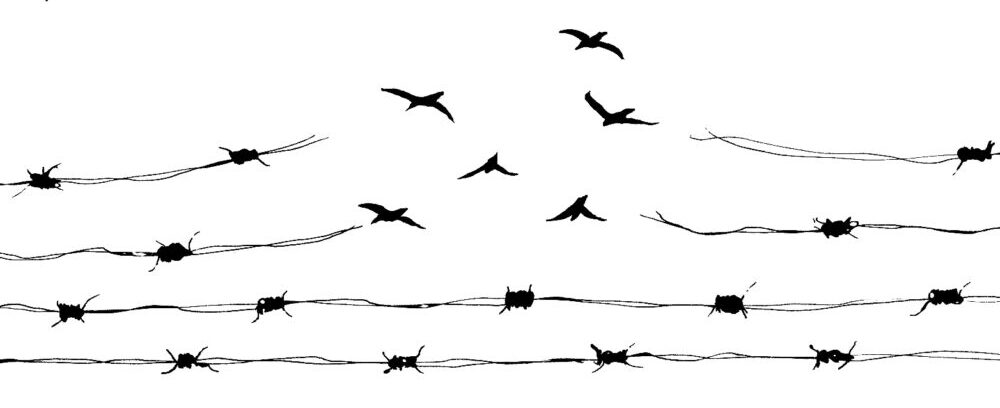🇩🇪 Deutsch
What is Soli-Asyl?
The German state deports people. These deportations, which deprive people of their livelihoods and knowingly expose them to life-threatening situations, are happening on a weekly basis. This form of state violence is also exercised in Würzburg.
Many people living in Würzburg and elsewhere are resisting these violent deportations. Not being at home when the police carry out their deportation raids is a form of resistance. To be able to continue to defy deportations and to stay in Germany, people at threat of deportation are looking for safe places to sleep.
Soli-Asyl refers to the concept and practice of offering temporary refuge to people who are threatened with deportation.
In a joint act of civil disobedience and lived solidarity, active parts of civil society are opposing and standing up against the ruthless deportation practices of the German immigration authorities. Instead of simply accepting this reality, people open up their doors and support others in their fight for their right to stay.
From a global and historical perspective, it is a long-standing practice to provide shelter to people who are threatened by the state. To ensure that a deportation can be carried out, authorities often do not announce the date. Consequently, thousands of people hide from deportation every day. However, this usually happens within self-organized groups of refugees and family circles. These struggles therefore commonly take place far away from the broader public and tend to remain invisible in isolated refugee camps.
It is about time that also people with more privileges follow these examples of resistance, show solidarity, and open up places of refuge for people at risk of deportation. This demand is also one of the main reasons why we initiated »Network Soli-Asyl Würzburg«.
Why Soli-Asyl?
The German asylum system to this day is based on racist and colonial categories which define who is allowed to live in Germany and who is not. Categories that serve to criminalize freedom of movement and provide exceptions only for those whose presence is considered economically and politically valuable.
Whether immigration office, police, reception facilities, or BAMF [Federal Office for Migration and Refugees] – they all contribute to the conscious maintenance of the prevailing power structures and colonial power relations. In doing so, they transform a racist world view that is deeply rooted in our society into a violent reality.
Moreover, the German immigration authorities often do not recognize people’s individual reasons for wanting or having to leave their country. The criteria for asylum are formulated in general and complex ways and are based on the racist assumption that people disguise their reasons for seeking protection.
Experience has shown that deportations can affect anyone without a supposedly secure residence status. The German immigration authorities do not shy away from forcibly deporting people that have been living in Germany for years or even those who were born in the country. The same applies to people in vulnerable or precarious situations. People are being deported to either other European countries or to their countries of origin, regardless of what awaits them there.
As long as deportations are carried out as a form of nationalist state violence, there needs to be resistance!
Who is Soli-Asyl for?
Soli-Asyl is aimed in principle and without exception at all people who are threatened with deportation and who are fighting for their right to stay in Germany.
When people seeking protection enter Germany but were previously registered in another EU country, Germany will attempt to deport them to the »country of first entry« under the EU Regulation »Dublin III«.
Only if the responsible immigration authorities are unable to deport a person to the respective EU Member State within six months, Germany will become responsible to process the asylum procedure. This period is extended to 18 months if the authorities assume that the person is deliberately evading their deportation. The person then is considered as being »fugitive«.
However, also people for whom Germany has declared its responsibility may need a safe place after their asylum application has been rejected in the last instance. In this case, people often try to find alternative solutions to secure their right to stay. These options include, for example, obtaining medical certificates, a soli-marriage, or legal ways through the German Residence Act.
To sum up: Who is Soli-Asyl for?
- People who are at risk of a Dublin deportation within six to 18 months after their asylum application has been rejected.
- People whose asylum application has been definitively rejected and who need a place of refuge which gives them time to find alternative solutions.
Whether and for how long Soli-Asyl makes sense always depends on the individual’s situation. At the same time, Soli-Asyl is the last option for obtaining a right to stay. Soli-Asyl can only make a meaningful contribution to preventing deportations once all legal options have been exhausted.
You would like to know more about Soli-Asyl, learn about possible first steps, or find out how you can show solidarity with refugees? Then go have a look at our »Get Active« section.
Under »Info Material« you will find a list of useful information material on the subject of deportations, practical tips on how deportations can be prevented, and further resources on the situation and support of illegalized people.
Further information on legal and other questions is available under »Safety and Legal Matters«.
